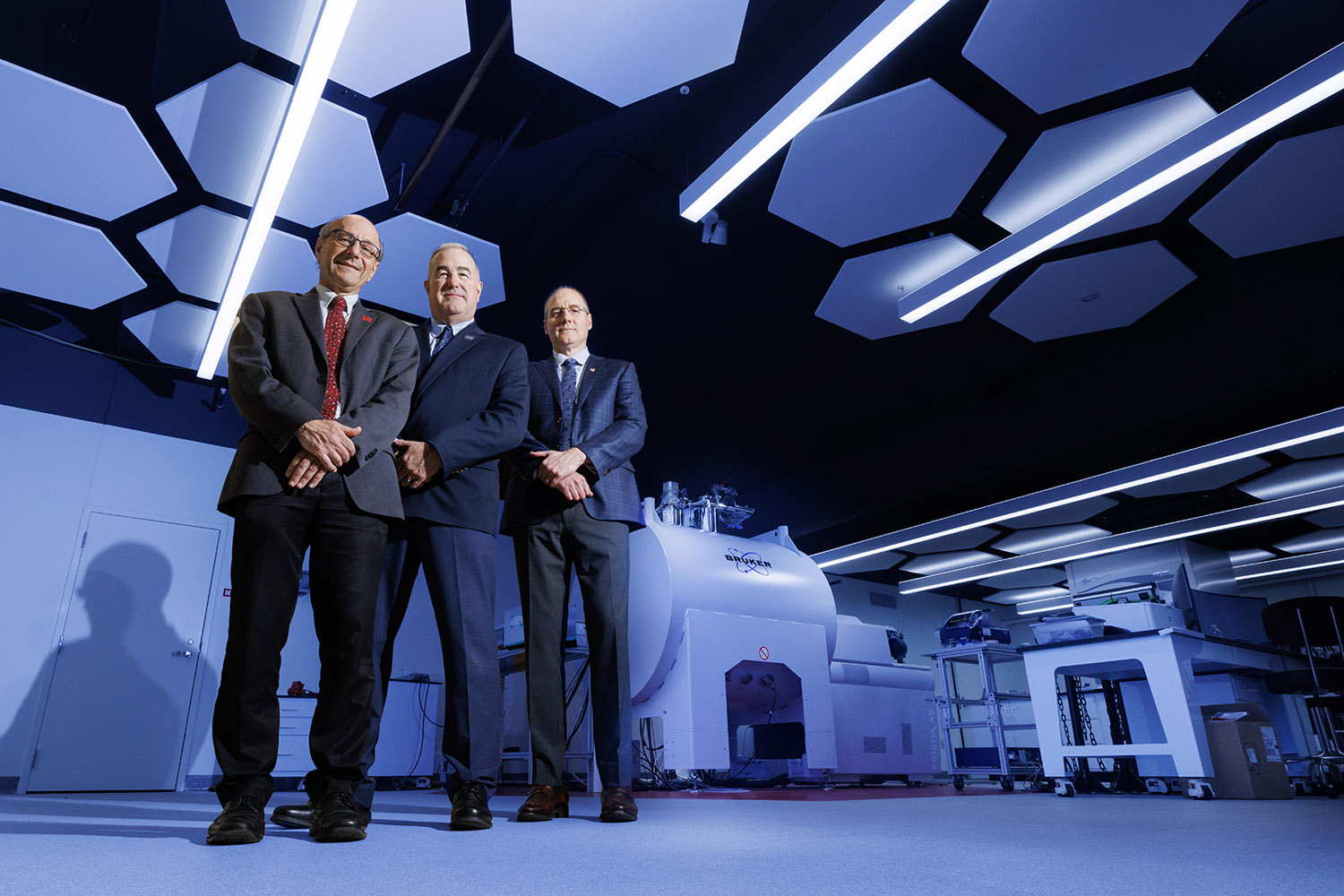Radiation poisoning remains a threat to U.S. military personnel. To help protect troops, an interdisciplinary team of University of Nebraska researchers is developing novel drug therapies to prevent or counter its effects.
NU’s National Strategic Research Institute, which guides the effort, received $24.5 million from the Defense Health Agency of the U.S. Department of Defense to continue the work. It’s the highest single-project award in the institute’s history and brings the project’s total to over $35 million.
Radiation poisoning, or acute radiation syndrome, manifests in a variety of serious, often fatal, symptoms. Exposure to high levels of radiation results from nuclear weapons, nuclear accidents or “dirty bombs,” conventional weapons augmented with radioactive material.
UNL and University of Nebraska Medical Center researchers, working with the Armed Forces Radiobiology Research Institute, have made substantial progress toward developing numerous pharmaceutical compounds.
The new funding allows the team to continue testing promising drugs and to gather data for eventual Food and Drug Administration approval.
“We are looking at both prevention and mitigation strategies, and they are not necessarily the same agents,” said project co-leader David Berkowitz, Elmer and Ruby Cordes Professor of chemistry. “It is really a challenging space scientifically. But I think that is why our team has been so successful: We have passion for the purpose of this work.”
The Nebraska Drug Discovery and Development Pipeline has been a key factor in the project’s success.
ND3P connects drug development expertise, facilities and technologies to pursue essential but rarely needed therapies that would otherwise not be sought due to low profitability. Nearly 80 NU researchers are part of ND3P, which is supported by a committee of industry and academic leaders.
The acute radiation syndrome project is a cornerstone of the ND3P, said project co-leader Ken Bayles, UNMC vice chancellor for research. By demonstrating the University of Nebraska’s ability to take specific chemical entities from conception to the FDA, the project demonstrates ND3P’s ability to serve as an alternate path toward FDA approval.
The National Strategic Research Institute is sponsored by the U.S. Strategic Command and is one of only 15 DOD-designated University Affiliated Research Centers.
Additional content
- News release: NSRI, NU awarded $24.5M contract to develop acute radiation syndrome prophylactic
- Straight Arrow News report
From left: David Berkowitz of the University of Nebraska–Lincoln, Rick Evans of the National Strategic Research Institute and Ken Bayles of the University of Nebraska Medical Center are shown with the new 15-Tesla ICR-MS instrument.
